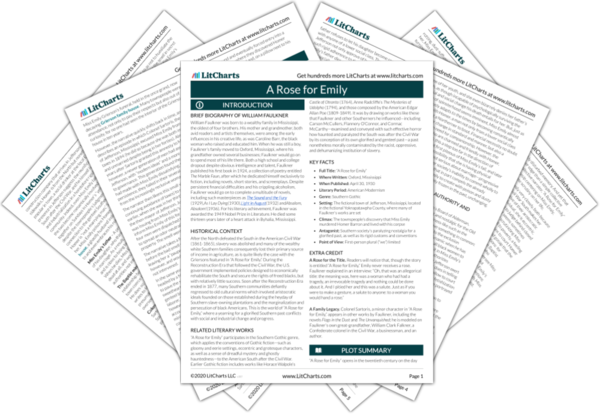Miss Emily’s father Quotes in A Rose for Emily
She told them that her father was not dead. She did that for three days… We did not say she was crazy then. We believed she had to do that. We remembered all the young men her father had driven away, and we knew that with nothing left, she would have to cling to that which had robbed her, as people will.

Unlock explanations and citation info for this and every other A Rose for Emily quote.
Plus so much more...
Get LitCharts A+
Miss Emily’s father Quotes in A Rose for Emily
She told them that her father was not dead. She did that for three days… We did not say she was crazy then. We believed she had to do that. We remembered all the young men her father had driven away, and we knew that with nothing left, she would have to cling to that which had robbed her, as people will.

Unlock explanations and citation info for this and every other A Rose for Emily quote.
Plus so much more...
Get LitCharts A+








